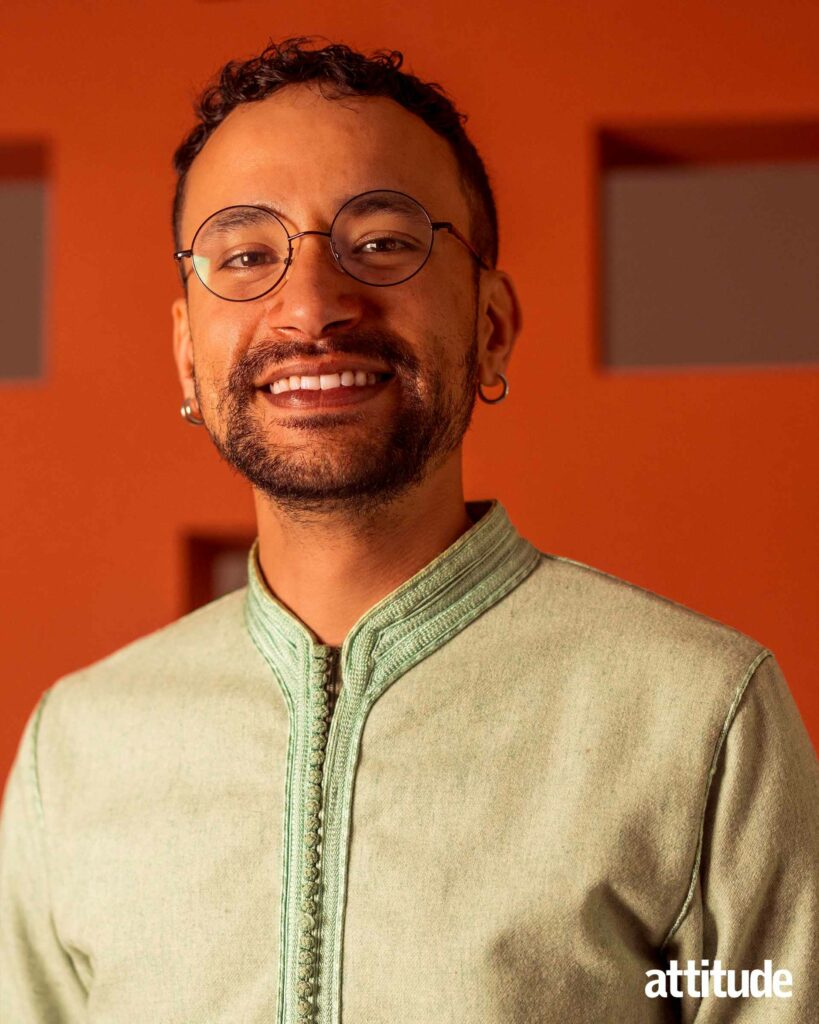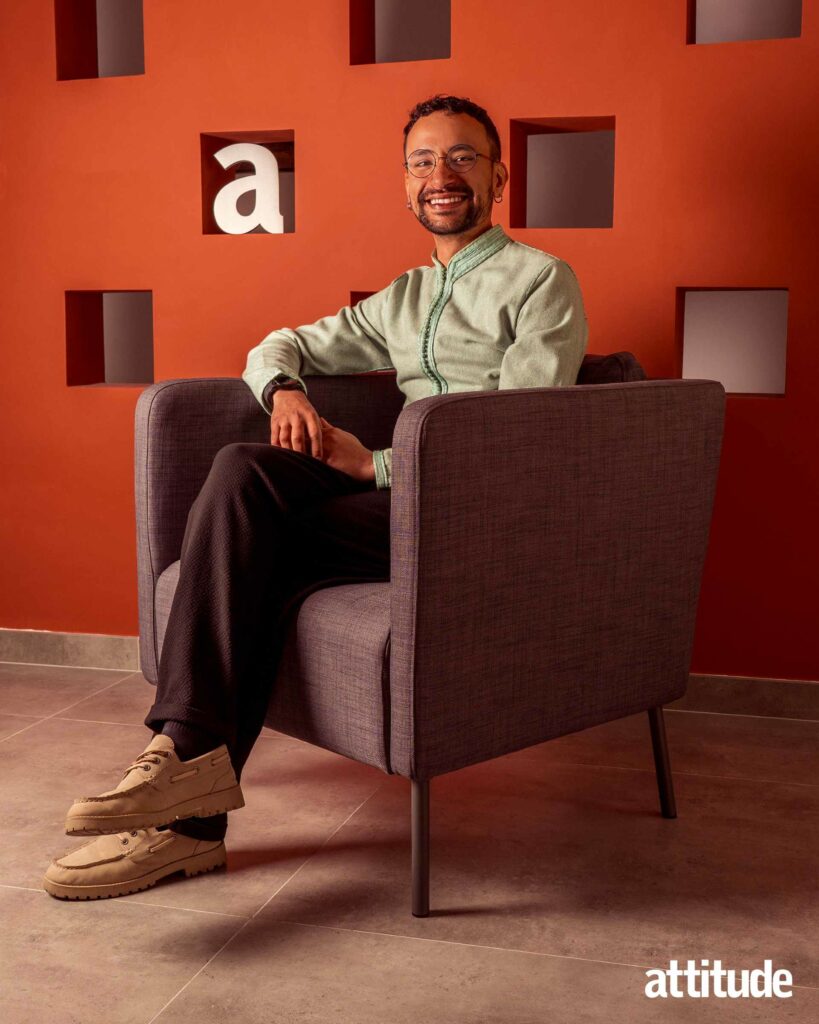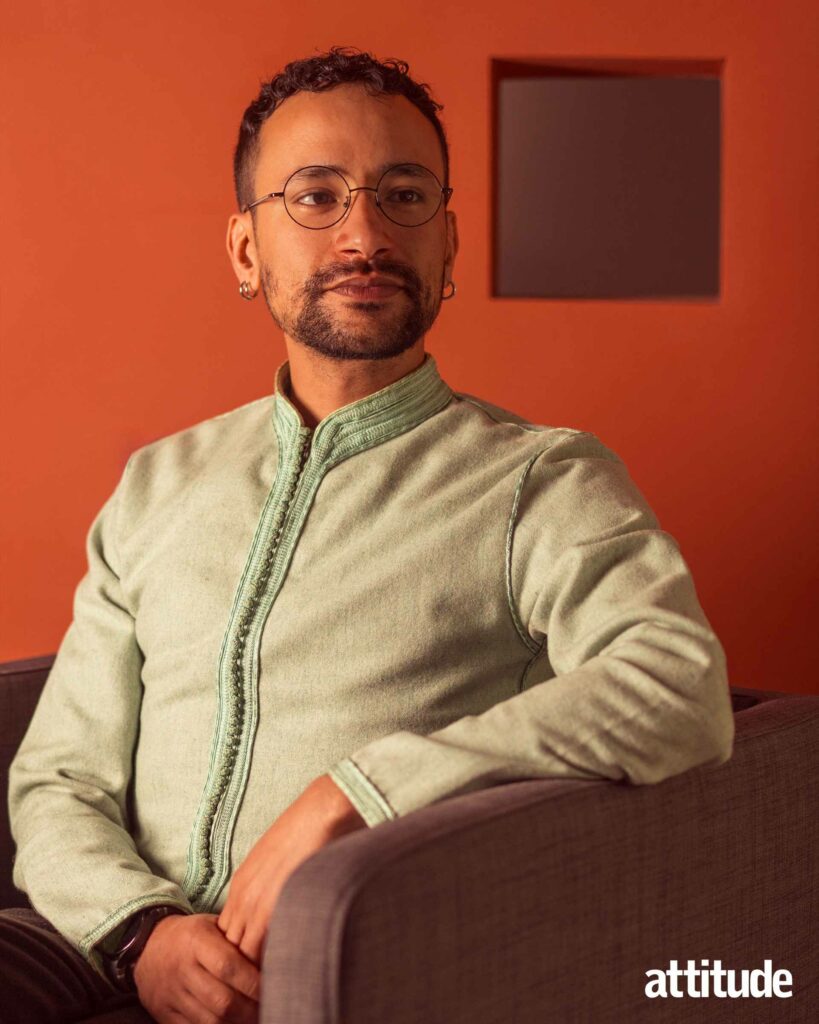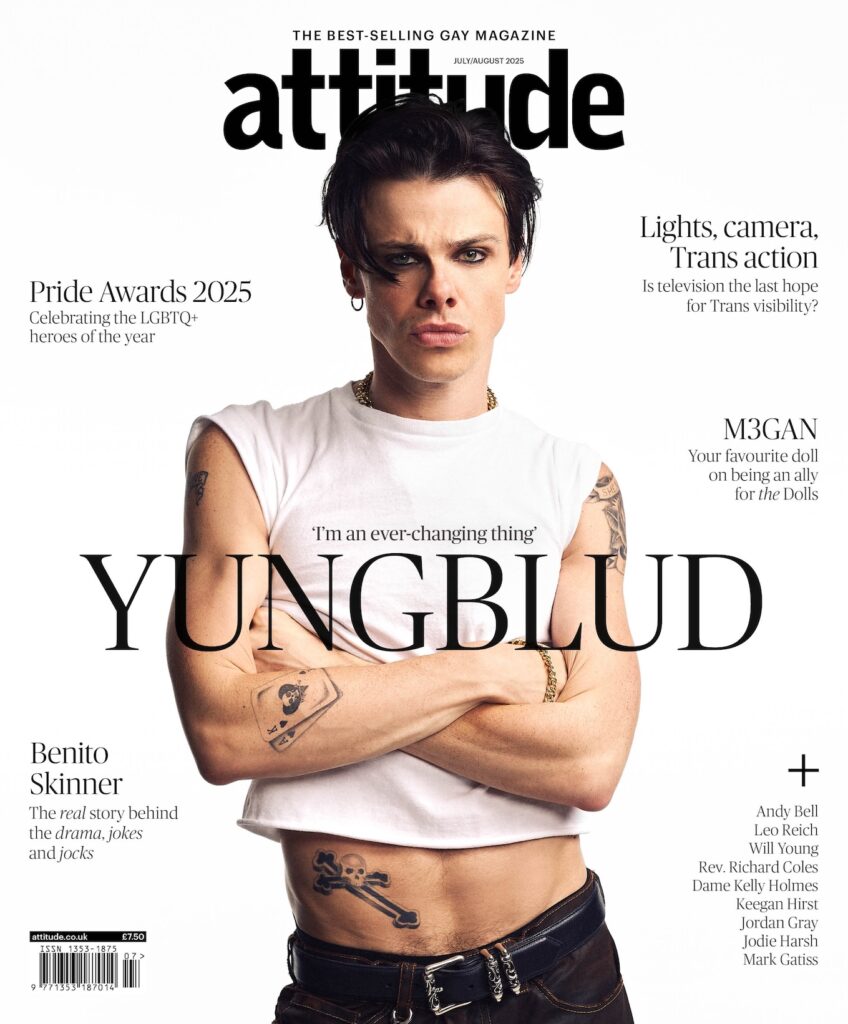Exiled Tunisian Mohamed Ali Aguerbi on LGBTQ+ asylum laws: ‘Politicians think of the masses and forget about minorities’ (EXCLUSIVE)
Honoured at the PEUGEOT Attitude PRIDE Awards Europe 2025, supported by British Airways, Aguerbi advocates for queer migrants across Europe whilst living in Malta, exiled from his home in Tunisia
By Dale Fox
“I didn’t have a lot of hope before,” says Mohamed Ali Aguerbi, known to his friends as Dali. “Living in Malta gave me that. It gave me security and a glimpse of the future.”
That glimmer of light was hard-won. Born in Tunisia, Aguerbi, one of the winners at this year’s PEUGEOT Attitude PRIDE Awards Europe 2025, supported by British Airways, was the youngest of four in a working-class family. A creative child, he grew up volunteering with the Red Cross, joining youth organisations, and entertaining children as a clown and magician. Later, he trained in theatre and arts production, beginning a career as an artist. But by his teens, another reality was quietly unfolding. “I never saw my sexuality as something wrong,” he says, “but I also thought I was the only one.”
Like many queer people raised without visible role models, Aguerbi’s journey towards self-understanding was slow and private. But by 17, he had found his people — and began fighting for them. He joined Tunisia’s first LGBTQ+ NGO, delivering sexual health awareness workshops and outreach. “It was empowering,” he says. “But it was dangerous too.”

Same-sex relations are illegal in Tunisia under Article 230 of the Penal Code, punishable by up to three years in prison. The NGO’s activists were given safety briefings that covered everything from secure communications to choosing homes with easy escape routes. “We were told not to go to the police — not even to report an assault,” he says. “You had to act straight, even if you were beaten up in the street.”
That fear became reality when the anti-terror squad raided Aguerbi’s workplace and arrested him, mistaking an art project for extremist propaganda. He says: “They humiliated me for wearing skinny jeans, for having a piercing. They went through my laptop, my Facebook, everything.”
“They told them if I came back from Malta, to inform them immediately” – Mohamed Ali Aguerbi
Though the charges were dropped, Aguerbi’s activism led the police to begin building a new case against him. At the time, Aguerbi was at an arts residency in Malta. “They went to my parents’ house,” he says. “They told them if I came back from Malta, to inform them immediately.”
With the threat of arrest hanging over him, he made the painful decision to apply for asylum, leaving his friends, family and homeland behind — possibly forever. “I never planned to stay,” he says of Malta, where he now lives.

“They told me it would take six months,” Aguerbi says of his asylum application. “My decision came after two and a half years.” In that time, he found little support. “There were no services for LGBTQ+ asylum seekers,” he explains. “No social spaces, no awareness in the organisations.” And within the wider queer community, language and cultural barriers made it easy to feel invisible.
Still, Aguerbi began to rebuild his life. With support from lawyers, a social worker and a romantic partner, he started volunteering with Malta’s biggest LGBTQ+ NGO, Malta LGBTIQ Rights Movement (MGRM). He went on to co-found Rainbow Bridge, a grassroots network for LGBTQ+ migrants.
“We created a leaflet listing NGOs that support LGBTQ people and migrants — legal support, English lessons, healthcare, food banks,” he says. That evolved into a documentary, and eventually a growing community. “Now we are around 70 people in a WhatsApp group. Every third Friday, we organise something — beach days, potlucks, karaoke, game nights. People share advice about visas, HIV medication, trans healthcare. It’s a community now. It’s family.”

But life as a refugee still came with stigma. He recalls that when he tried to access healthcare during Covid, a worker asked him, “‘You told me you’re a refugee, a student, and you work — how come?’ For her, it didn’t make sense. But that’s my life. I didn’t come here to do nothing.”
Aguerbi still sees himself as one of the lucky ones — and never forgets the people who aren’t. “I have a friend in Tunisia who was arrested just because police found gay porn on his laptop,” he says. “He was convicted under Article 230 and forced to undergo an anal test. He was studying, he had a future, but it all stopped.”
That “test” — a forced anal exam used to “prove” someone is gay — is condemned as torture, including by the United Nations and Amnesty International. “The doctor, with the presence of the police, with the order of the judge… will put their finger in someone’s anus to prove that the muscles are dilated and the person is used to anal sex,” Aguerbi explains. “That in itself is enough to convict someone.”
“Politicians think of the masses and forget about minorities” – Mohamed Ali Aguerbi
Despite this, Tunisia was placed on the European Commission’s proposed list of ‘safe countries of origin’, published in April 2025 — a designation that, if approved, would fast-track asylum rejections for applicants from those nations.
“It’s a direct threat to the LGBTQ+ community,” Aguerbi says. “Politicians think of the masses and forget about minorities. Tunisia is not safe. Bangladesh has a life sentence. Morocco, three years [of imprisonment]. Egypt, 17 years. And we know what happened to Sarah Hegazi [an Egyptian lesbian activist who was imprisoned and tortured for raising a Pride flag at a concert, and later died by suicide in exile]. That shows how much this decision will impact us.”
Now a permanent resident of Malta, Aguerbi works as a freelance artist and continues to volunteer with MGRM, advocating for queer migrants across Europe.
Most importantly, he’s found in Malta a place where he can finally be himself. “I walk down the street now and see people I know,” he says. “It feels like home.”
To read this interview in full, check out issue 365 of Attitude magazine, available to order online here and alongside 15 years of back issues on the free Attitude app.

